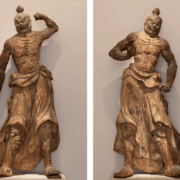Sleep apnea affects an estimated 25 million American people, with 80% of those affected going untreated. Sleep apnea may cause stroke, cardiovascular problems, and a slew of other health issues, not the least of which is the fogginess and weariness that can impair judgment and increase your chance of a car accident.
While the relationship between dental care and sleep apnea is not fully known, we do know that the soft tissues in the mouth are involved in the most frequent kind of sleep apnea. As a result, your dentist or dental hygienist might be your first line of defense when it comes to identifying sleep apnea. For more information on sleep apnea in Las Vegas, consult a healthcare professional today.
Sleep apnea – what exactly is it?
Sleep apnea is a potentially dangerous sleep disease in which breathing continuously stops and resumes during sleep. Breathing must halt for 10 seconds or longer to be classified as apnea. Breathing disruptions lead patients to partially awaken dozens or hundreds of times during the night, limiting deep, restorative sleep.
People with sleep apnea are frequently unconscious of these short wakeful episodes, but they will experience tiredness or sleepiness the next day.
Among the signs of sleep apnea are:
- Awakening with dry mouth or sore throat
- Snoring
- Daytime fatigue
- Mood changes
- Difficulty concentrating and/or forgetfulness
- Morning headache
- Waking abruptly, gasping or choking
- Decreased libido
- High blood pressure
Causes of sleep apnea
The true reasons for sleep apnea vary greatly. Men are more likely than women to suffer from sleep apnea, and while it can affect people of any age, including toddlers, it most commonly affects those over the age of 40.
Sleep apnea risk factors include:
- Enlarged tonsils
- Nasal obstructions or sinus problems
- Obesity
- Family history of sleep apnea
- Small jawbone
- Large tongue or large neck
Types of sleep apnea
Obstructive sleep apnea, central sleep apnea, and complex sleep apnea are the three types of sleep apnea.
- Obstructive sleep apnea (OSA)
OSA is the most common form of sleep apnea, accounting for more than 80% of cases in the US. OSA occurs when the muscles that support the soft tissues in your throat, such as the tongue and soft palate, relax excessively, causing your airway to narrow. OSA can be caused by a variety of factors, including dental abnormalities, sinus and allergy problems, and obesity.
- Central sleep apnea
Central sleep apnea is a neurological condition in which the brain fails to stimulate the breathing muscles while sleeping. Central sleep apnea is most commonly associated with another neurological illness, such as a stroke or Parkinson’s disease.
- Complex sleep apnea
A kind of sleep apnea that combines central and obstructive apnea, in which breathing issues remain even when airway obstruction is corrected.
Because the most prevalent cause of sleep apnea affects all of the soft tissues of the mouth, a dentist is frequently the first medical expert to notice the problem.












Comments